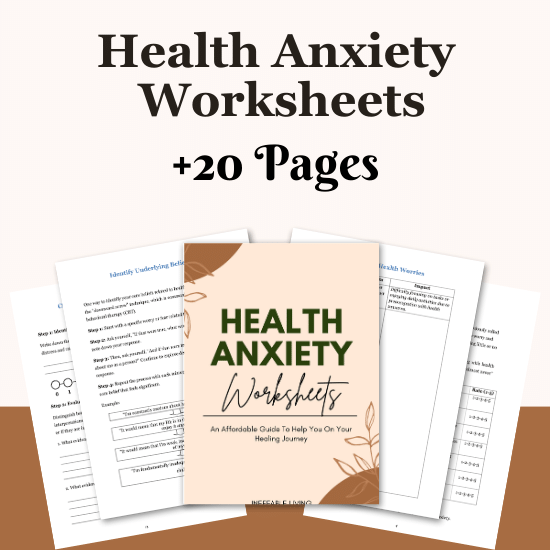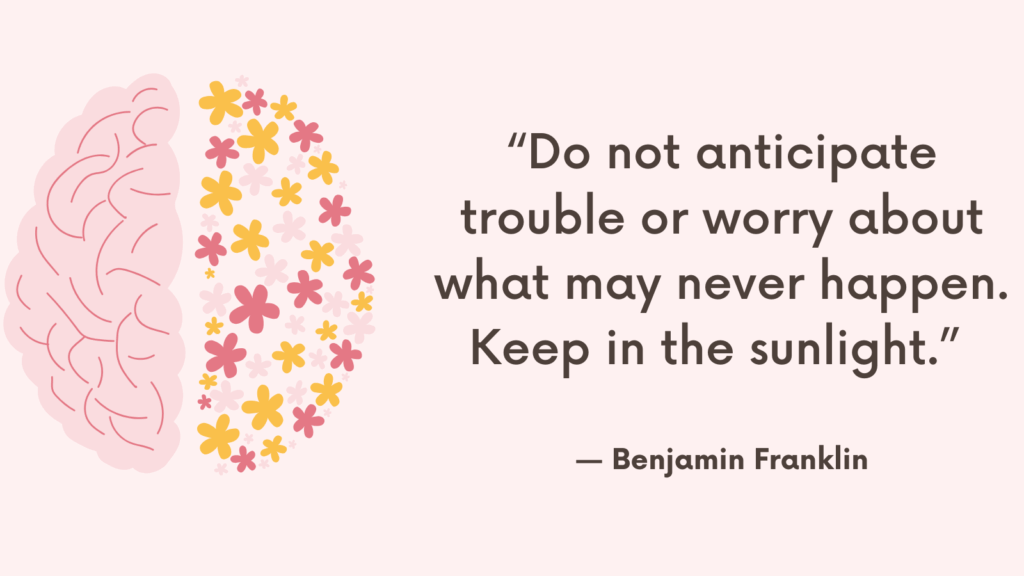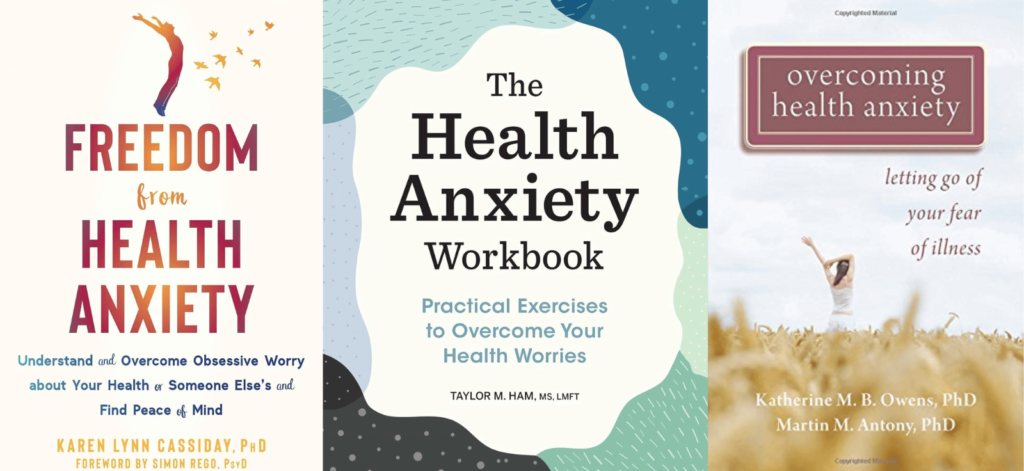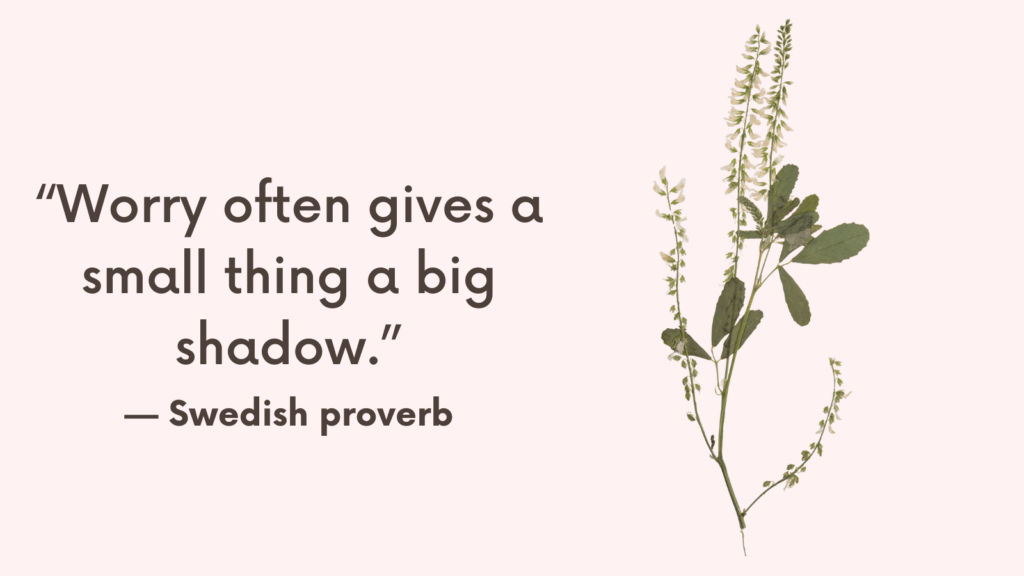Health anxiety often feels worst at night — when everything is quiet, distractions are gone, and your mind has space to spiral. You may wake up with a racing heart, feel a strange sensation and assume the worst, or lie awake catastrophizing symptoms. The fear feels louder in the dark — but there are ways to calm your nervous system and reclaim your rest.
A Real Condition With Real Impact
Health anxiety is not “just in your head.” It’s a recognized mental health condition that can severely affect quality of life. It often leads to:
- Constant stress and emotional exhaustion
- Difficulty concentrating or enjoying everyday activities
- Strained relationships from frequent worry or reassurance-seeking
- Financial burden from repeated tests or appointments
- Depression and other anxiety-related disorders
What makes health anxiety especially tricky is that the person often knows their fear is excessive, but still can’t stop the worry. That awareness can add shame and frustration to an already painful experience.
Related: Best 7 Health Anxiety Books
You’re Not Alone—And It Can Be Managed
The good news? Health anxiety is treatable. Therapies like Cognitive Behavioral Therapy (CBT), mindfulness practices, and exposure therapy can help you break the cycle of fear and reassurance. With support and the right tools, you can retrain your brain to stop jumping to the worst-case scenario and find peace in uncertainty.
If your health-related fears are taking over your life, know this: you’re not imagining it, and you’re not alone. What you’re feeling is valid—and help is available.
How to Handle Health Anxiety in the Middle of the Night?
1. Remind Yourself: “This Is Anxiety, Not Emergency”
Say it gently but firmly:
- “I’ve felt this before. It’s scary, but it’s not dangerous.”
- “Nighttime makes fear louder, not more accurate.”
Labeling it as anxiety helps reduce its intensity.
2. Don’t Reach for Your Phone
Avoid Googling symptoms — it will only increase panic. If the urge feels strong, move your phone out of reach or place it in another room before bed.
Related: How to Cope with Health Anxiety without Medication?
3. Use Deep Breathing to Reground
Try the 4-7-8 method:
- Inhale for 4 seconds
- Hold for 7 seconds
- Exhale slowly for 8 seconds
Repeat 4–5 cycles. This signals your brain and body to exit “threat mode.”
4. Shift Your Focus With a Grounding Technique
Try a sensory exercise:
- Name 5 things you can hear
- Wiggle your fingers and toes
- Lightly touch something soft or textured
This anchors you in the present and calms racing thoughts.
Related: Hypochondria: How to Deal with Health Anxiety?
5. Write Down the Fear
Keep a notepad by your bed. When fears swirl, write them out:
- “I feel afraid that _______.”
- “I’m having the thought that _______.”
Getting it out of your head often relieves the pressure.
6. Repeat a Comforting Mantra
Choose a short, calming phrase to repeat silently:
- “I am safe in this moment.”
- “This feeling will pass.”
- “I’ve survived this before — I can do it again.”
Repetition helps override fear-based thoughts.
7. Get Out of Bed for a Few Minutes
If the anxiety won’t settle, get up. Go to another room, sit with a warm drink, or stretch quietly. This can help break the cycle of lying in bed feeling helpless.
8. Avoid Checking Your Body
Try not to take your pulse, look in the mirror, or analyze sensations. These actions feed the anxiety loop. Instead, say: “My body is okay. This is a fear response.”
Related: Best 45 Health Anxiety Affirmations
9. Use a Calming Distraction
Put on a gentle podcast, white noise, or an audiobook. Choose something familiar and neutral to fill the space without overstimulating you.
10. Be Kind to Yourself
Don’t criticize yourself for being anxious. Say:
- “It’s okay that I’m scared right now.”
- “I’m doing the best I can.”
Self-compassion is calming in itself.
Related: How to Break the Panic Attack Cycle?

Conclusion
Health anxiety in the middle of the night can feel intense, but it’s temporary. You’ve felt this before — and you’ve come out the other side. With gentleness, awareness, and tools, you can turn the night from a battlefield into a place of rest again.



